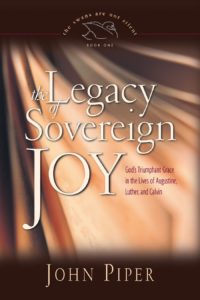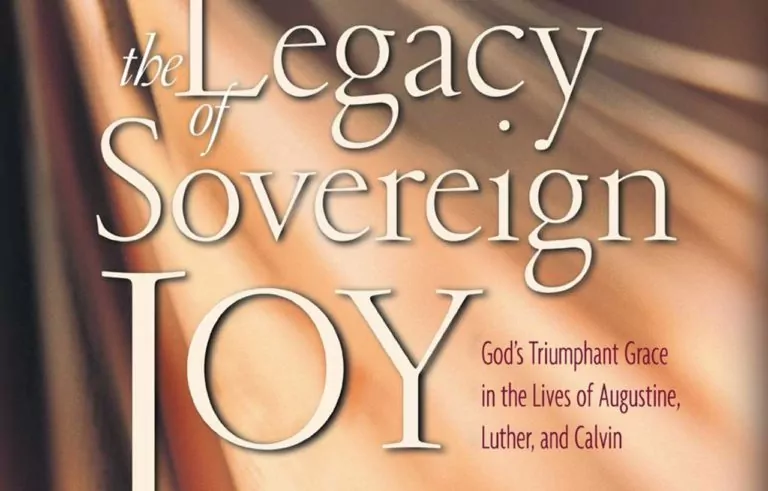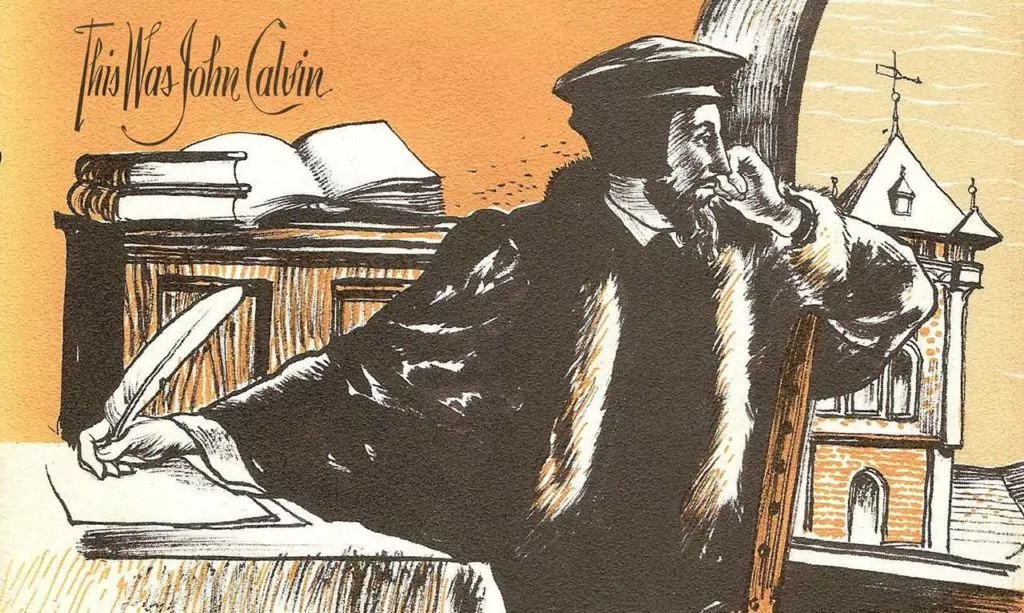by John Piper
160 pages / 2000
Meet the giants! In this slim volume, John Piper tells the tales of Augustine, Martin Luther and John Calvin with a very specific purpose. He aims to encourage modern-day believers by showing how God’s grace overcame each man’s flaws to provide the church with the gift of their work and example.
Augustine was arguably the most influential church father after Paul. He was also a favorite of John Calvin, who quoted him 342 times in the Institutes. He spent the early years of his life enslaved to lust, living with a concubine, and drinking in the philosophical ideas of his day. His eyes were finally completely opened and God became his “sovereign joy.” Augustine spent much of his life and energy defending the centrality of God’s grace against the Pelagians, who taught that, “though grace may facilitate the achieving of righteousness, it is not necessary to that end.” His complete dependence on God is perhaps best summed up with his prayer: “Command what you wish, but give what you command.”
Martin Luther’s story is generally well-known among Reformed folk, and is another striking example of the grace of God at work in history. Luther had an extremely high view of the Bible as the very words of God, and thus spent countless hours reading and wrestling with the Word. It was this relentless study that God used to open Luther’s eyes to the wonder of grace, which freed him from bondage to the works righteousness of the Roman Catholic church. This view of God’s Word also led Luther to warn against spending all one’s time reading commentaries and books and never going beyond this to the Word itself. Doing so makes us “like men who study the signposts and never travel the road.”
John Calvin, another well-known Reformer, shared Luther’s view of God’s Word, and was awestruck at the majesty of God present in the pages of Scripture. B.B. Warfield once wrote that, “No man ever had a profounder sense of God than he.” Calvin had visions of spending his days quietly as a biblical scholar. However, God called him to pastoral ministry through the imprecations of William Farel and later Martin Bucer (contemporary Reformers). Calvin continued to dig through the gold mine of God’s Word, producing an astounding number of sermons, commentaries, and his well-known Institutes of the Christian Religion.
This book is certainly not an exhaustive historical treatment of each of these men since it serves a more pastoral purpose of encouragement. Throughout the book Piper makes generous use of original quotations from these men, and, although some quotes are unnecessarily reused a number of times, they overflow with a love and zeal for God. In fact, they may stir the reader to reading the originals. Overall, an easy and encouraging read for anyone.
To make it even more appealing, John Piper is giving the e-book version of it away free. You can download the pdf by going here.













